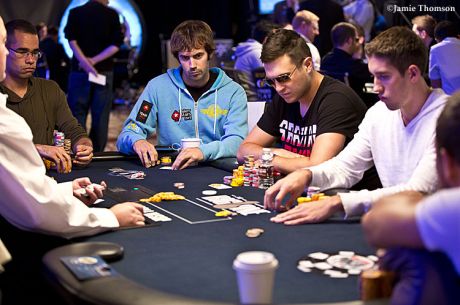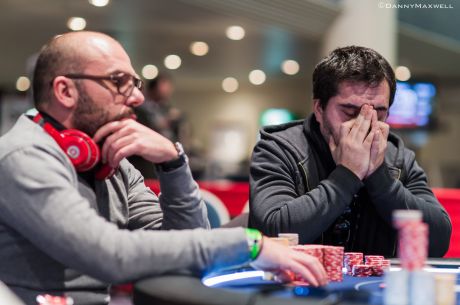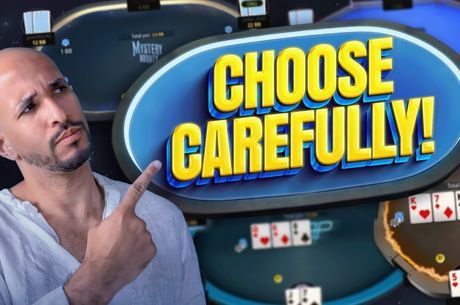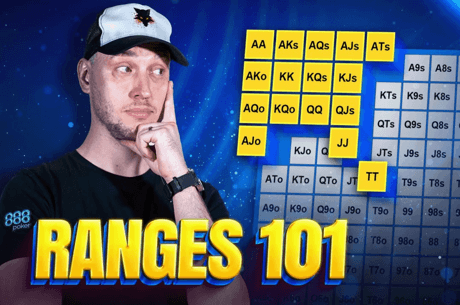Cash Advances, Vol. 2: Checking to Improve Relative Position

Carlos Welch returns with another installment of his Cash Advances series in which he shares cash game hands illustrating some advances in his play.
The Hand
It’s my regular $1/$2 game. The effective stacks are $300. The button straddles for $5. I raise to $20 from the small blind (SB) with Q♠Q♣ and get calls from the big blind (BB), a player in middle position (MP), and the button (BTN). There is $80 in the pot.
The flop comes 10♦8♦6♥.
This flop is not good for most of the hands in my range (I think), and I am out of position to three players. This is not a good spot to c-bet. However, it is a good spot to check for information. Let’s see what everyone else does before I make a decision on how to proceed.
I check. BB bets $25 and gets called by both the MP player and the BTN.
On a wet flop, the BB has made a bet of just under one-third the pot into three opponents. This seems very marginal. MP and BTN just call the small bet — that seems marginal as well. Anyone with a strong hand or draw would not play this way. I think they all have either a marginal pair or a marginal draw and that they would like to keep the pot small. Time to poop on their party.
I raise to $100. BB and MP quickly fold. BTN gives a speech and then tank-folds after showing a 10x. We will never know for sure, but MP said he folded Ax10x and BB claimed he folded KxKx.
The Advance
This time last year, I would have likely bet big on this flop in order to protect my hand. There are a couple of problems with that approach.
First, I can’t protect my hand from a strong draw on this board. Even if I lead with a pot-sized bet, anyone with a strong combo draw is at least going to call. They might even shove, in which case, I’d either be slightly ahead or way behind.
Second, if I bet big to protect all my marginal hands, then my betting range will be too weak since there aren’t that many strong hands I can include to protect that range. Good players will read me like a book. When I bet big, my range will be weighted towards overpairs. When I check, I will usually have nothing.
Checking is clearly the best option because it avoids all of these range problems and it has the added benefit of improving my relative position. This is what I meant by checking for information.
As the preflop raiser, everyone will usually check to me before they make a decision. By declining to c-bet when I am out of position on a multi-way, wet flop, I pass that burden to the poor guy on my immediate left and give myself the best possible relative position. This means that even though I am in the worst possible absolute position (the SB), I get to see what the others do before I have to make a decision. Once I check in this hand, BB cannot check and force me to make the first move. He’s stuck with the hot potato.
Had BB made a big bet, I would have just called it or maybe even folded to it. Had he bet and been raised by either the MP or BTN, I would have folded for sure. Had it checked around, I could have made a delayed continuation bet on some turn cards once everyone had shown weakness. As it turns out, they all showed weakness in their bet-sizing, allowing me to win a larger pot with more information and less risk than a c-bet would have.
The Lesson
Protecting your hand by c-betting big on a multi-way, wet flop is often not a good idea, especially when you are out of position. Consider checking to improve your relative position and reevaluating when you have more information instead. Pay attention to bet-sizing tells and do not be afraid to attack weakness when you sense it.
Get all the latest PokerNews updates on your social media outlets. Follow us on Twitter and find us on both Facebook and Google+!








